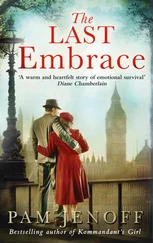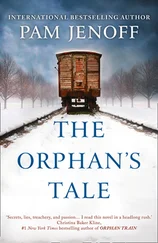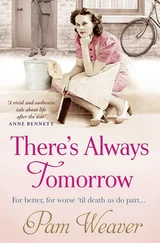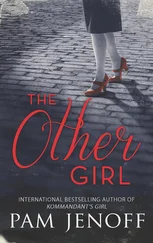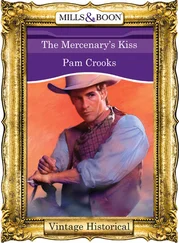Kit had his eyes open now. In truth, he did look rather dazed-from her histrionics, and from something else as well, that she couldn’t quite construe at the moment.
All right, perhaps she’d never called him her only love quite like that before.
And all right, perhaps she’d meant it.
“Help me, Fannie,” she called, and together they did a fair simulation of dragging him to the carriage and hauling him onto the seat.
“I’ll explain later,” she whispered to the girl. “But thank you for helping me save him. And to save some of them as well.”
Unsatisfied curiosity warring with wounded pride, Fannie took her seat in the back and snapped the big umbrella open.
Mary took the reins. She could hear more singing from inside the tavern. The men who wouldn’t be dissuaded, she thought.
“Best to pretend you’re still dazed,” she whispered to Kit. And they were off.
“How do you feel?” she asked him.
“Like I’ve taken a heavy fall to the floor,” he answered, “and a bit of a knock on the jaw.”
She smiled, and he shook his head.
“And like hell that I couldn’t stop all of them.”
“You stopped quite a few. Perhaps they’ll disperse on the road; perhaps the Nottingham magistrate will be reasonable…”
They rode on in silence for a few minutes.
He rubbed his nose. “Not broken, at least.”
“That’s a mercy. I’ve always loved it…”
He moved closer to her. “ We stopped them, together-those that we did stop. We kept a few men from being clapped in irons anyway. For that’s what will happen to some of them-I’ll wager that the magistrate toward Nottingham will be out, with his troops, to arrest those marching through there when the sun comes up.”
She nodded, shivering in the wet.
“He’s my cousin, you know,” he said a few minutes later.
“Who’s your cousin?”
“Well, probably more than one of them, but I mean that boy who tried to punch me, Nick Merton.”
“Ah, I always thought of you when I looked at him.
But how do you know?”
“I spent an hour reading the parish records. Third cousin, once removed. Of course, he’s not the only one-Mr. Greenlee comes from a large family. It gives one a different sort of feeling about the people here.”
“I see.”
“And what was almost as bad,” he said, “was shattering their hopes, when I’d manage to convince one or another of them that it was a sham, that there wouldn’t be chartered boats down the Trent or thousands of their cheering fellows awaiting them in London. It’s awful to take hope away from anyone.”
“You’d hoped for something too from the Home Office.”
“I’d hoped for quite a lot. A life’s work. A calling, I expect you’d say. I don’t like living to amuse myself. I want to know what I’m going to be doing tomorrow, besides writing to Sidmouth to withdraw my application for employment and to protest their use of provocateurs. I wish I could offer you a husband who knew what he’d be doing tomorrow.”
“Tomorrow,” she said, “you must meet Edward Elyot. He needs your help with an essay he’s going to write.”
“Elyot? What do you mean?”
“You really don’t know? You… honestly liked what I wrote? But why didn’t you tell me?”
She’d flung her arms around him.
“What the devil?” But he hadn’t passed spy messages for nothing. “Really, that was you? How extraordinary.”
“Yes, and I’m going to write about what happened tonight at the Anvil Tavern and how the men were wronged, and Richard will publish it. And you must use your eloquence, and your memory, and your talent for detail in particular, to make sure… that I… that he… that we get it right.”
“Edward Elyot, eh?”
“You used to call him Cousin Ned when he wore his bright red neckcloth.”
“Indeed. You’re a woman of parts, Lady Christopher.”
“Will you help me?”
“I will,” he said.
“And after tomorrow?” he asked. “Have you any suggestions for what I shall do after tomorrow?”
“Inquire how we go about building a cistern in the village-which will be as immediately important to the women as the vote will be to the men. And of course, they’ll continue petitioning for the vote until they get it. They could use your help, I think. And someday perhaps you could run to represent the district.”
“As my brother’s candidate?”
“As theirs, perhaps. Who knows? Perhaps as mine.”
“Yes, that would be a life work. One would have to understand everything-rents, prices, new industries, good roads, and pure water… in order to make fair decisions. Would you help me, to be sure I… got it right?”
“I would, Lord Christopher. I will.”
The cloudy sky had become a little lighter, although the rain still came down upon the gravel road to Beechwood Knolls.
She yawned, and he stroked her wet hair.
“Were these our vows?” he asked.
“I expect they were.”
No need to vow to love each other-it felt as though they always had. It was difficult for either of them to remember who they’d been and what they’d done before they’d loved.
And no use to vow to stop struggling and squabbling-for that would never change. But to vow to try to help each other, imperfect as they were in the far-from-perfect world in which they found themselves.
There wasn’t a great deal more to say, and Fannie must be getting awfully wet back there. So they stopped, and Mary managed to convince her to let Kit wedge himself into the little backseat.
“I’ll drive home,” Fannie said, and so she did, in silence, while Mary admired the grace with which she handled the ribbons.
Fannie stopped the horse, and Kit jumped out of his seat to come help her down. She allowed Mary to kiss her good night, but when she tried to say something to Kit it came out a sob and she turned away quickly.
They stood arm in arm to watch her run up the front stairs.
The door opened. Elizabeth had been waiting up. They could see a golden tress escape from her nightcap before the girls became one form, engulfed in a tight hug, in the dimly lit doorway.
Still, Mary thought, what she’d heard from Fannie had been a sob of mortification and not of heartbreak. A sob of not believing you’ll ever be able to face someone again, though of course you will and quite soon too. Mortification, at eighteen, might seem a lot like heartbreak, but it wasn’t, thank heaven. At thirty-one, one had learned the distance between mortification and heartbreak, as well as the distance between thirty-one and eighteen.
There’s nothing like young people about you to make you feel, to make you know how old you are, Mary thought, and how responsible you are to them.
“I don’t want to stay here tonight,” she said. “Fannie needs a day or two without either of us.”
“Good,” he said, “I want to bring you home to Rowen.”
She yawned quite unromantically. It would be nice to get some sleep.
How quiet it was in this still, wet hour before dawn.
He gave her his hand, to help her up to the box.
She raised her foot to climb up and then lowered it again.
For in the quiet, you could hear another of the house’s doors opening-the side door, up from the kitchen.
Was no one safe abed tonight?
A small figure, looking rather wide in a russet cloak, bonnet, and several shawls, coming through the gate of the kitchen garden and softly closing it behind her, and now picking up her packages and coming quickly down the gravel path. Stopping now, and gaping at the two of them.
Had Peggy been waiting up to see that Mary was home safely?
Читать дальше



